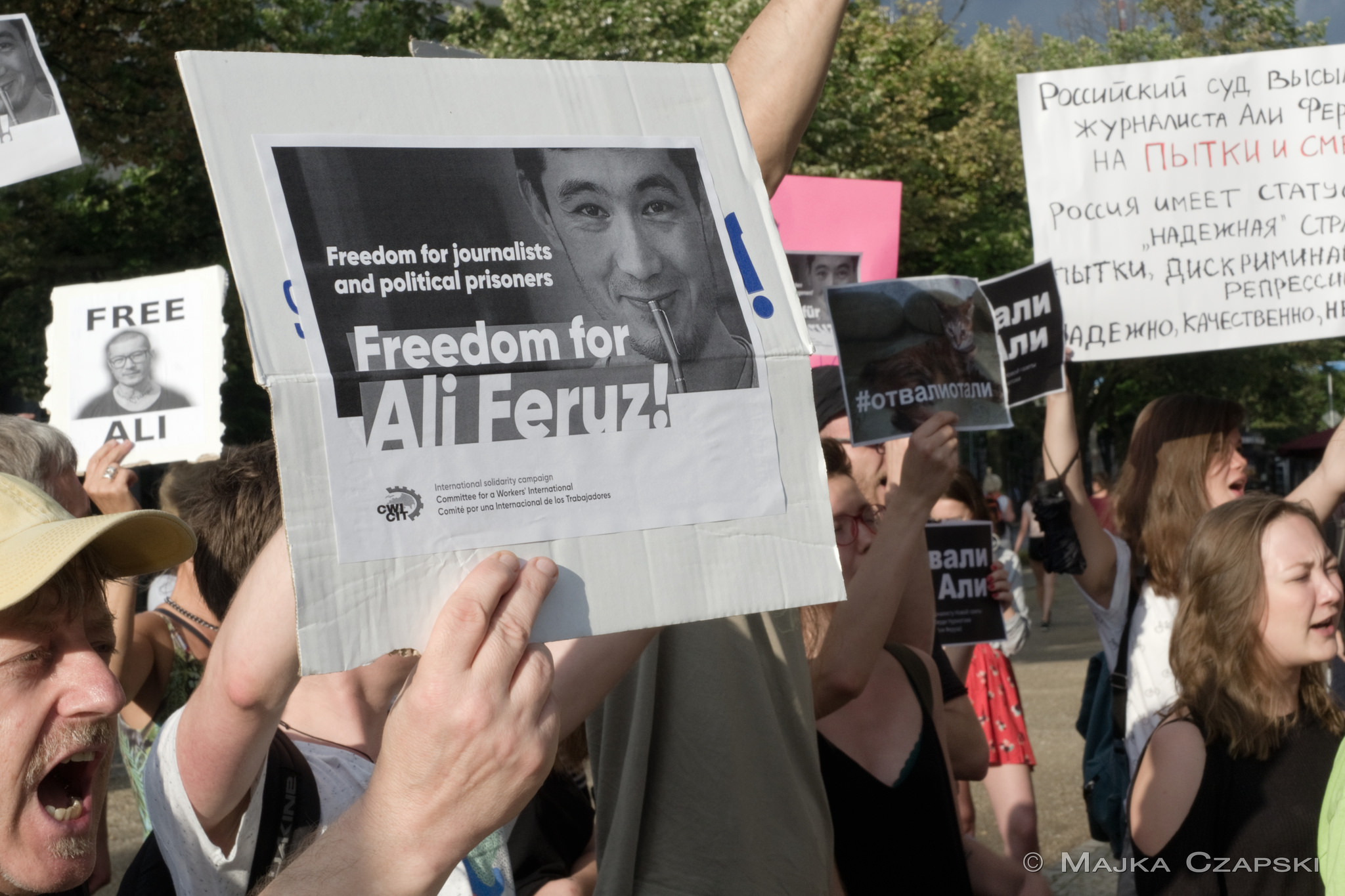A Russia-based journalist is facing a threat of deportation to Uzbekistan
Ali Feruz (real name: Khudoberdi Nurmatov), a human rights activist and correspondent of Novaya Gazeta, one of few independent Russian newspapers, is now under threat of being deported from Russia to Uzbekistan. The deportation would carry a high risk of Ali being tortured and international pressure is needed to stop the process.
August 7, 2017 -
Olga Irisova
-
AnalysisArticles and Commentary

In 2008 Ali was kidnapped and tortured by the National Security Service of Uzbekistan, as the authorities wanted to force him to work as a secret informer. After being tortured and threatened he agreed to cooperate, but immediately after his release he managed to flee to Kyrgyzstan, and then in March 2009 to Kazakhstan. However, given the close cooperation of the security services of these countries and his home Uzbekistan, Feruz could not stay in Central Asia (in 2011 alone Kazakhstan extradited 36 Uzbekistani asylum seekers to Uzbekistan, where all of them received real jail sentences of up to 20 years). In 2011 he moved to Russia where he had spent his childhood and graduated from secondary school in Altai republic.
Since 2015 Russian courts repeatedly rejected his applications for refugee status or temporary asylum. He appealed the decisions and is currently awaiting resolution of the case. Since his application is still being processed, he is legally permitted to stay in Russia. This, however, did not prevent Russian authorities from blocking his attempt to leave to an unnamed European country that was ready to grant him refugee status.
On August 1st, Russian police detained Feruz while he was on his way to Novaya Gazeta and took him to the Moscow Basmannyi Court, where at 11 pm (outside of the usual office hours of Russian courts) the judge Artur Karpov – known for participating in the politically motivated trials of Bolotnaya Square protesters, extending the arrest of Ukrainian pilot Nadezhda Savchenko, and authorising the arrest of liberal governor of Kirov region Nikita Belykh, ruled that Feruz should be deported from Russia to Uzbekistan.
Aware of what awaits him in Uzbekistan, Feruz tried to take his own life in court, but was stopped by the security guards. Later on, on the way to the center for people facing deportation, he was brutally beaten by the man who convoyed him. The beating has left a large bruise on his shoulder blade and for the next few days he suffered from severe cardialgia – the direct result of beating and stress. Feruz’s lawyer appealed against the decision to expel him from Russia in the Moscow City Court and the court is considering this complaint today, on August 7th.
Unfortunately, Feruz’s case is not unique. As Amnesty International reported, “Dozens of those who seek refuge in Russia have been abducted by Russian security officers, forcing them into cars in broad daylight, hooding them, and colluding with Uzbekistani security agents to return those who once sought refuge”. None of those who were deported back to Uzbekistan have been found innocent and released. In all cases, deportees ended up in prisons, where the conditions are appalling: tuberculosis, cruel treatment, systematic tortures are the norm. Most of the disappearances went unnoticed, and only family members and a few human rights defenders tried to find out what had happened to these men. They were later found in Uzbekistan with evidence suggesting that they had signed confessions under tortures.
In contrast, Feruz’s case has been well-publicised and attracted the attention of foreign journalists, international organisations and international justice. The European Court of Human Rights has issued a preliminary injunction ordering Russia not to deport Feruz to Uzbekistan until the court can review his case.
The decision, however, does not guarantee that the journalist will not be expelled from Russia. Back in December 2015, President Vladimir Putin signed a law permitting the Constitutional Court to ignore the decisions of the European Court of Human Rights if they are in conflict with the provisions of Russian law. The precedent has already been established – the Constitutional Court declared that Russia has the right not to fulfill its obligations to pay out 1.9 billion euros to Yukos Oil Company shareholders as was ordered by ECHR judgment.
In the current situation, when the reputation of Russia is damaged by the annexation of Crimea, the ongoing war in Ukraine, meddling in the US elections and systematic violations of human rights in the country, the international community must make it clear that ignoring the ECHR decision in Feruz’s case will further affect Kremlin’s credibility and international standing.
International pressure is crucial even in case Russia decides to deport Feruz directly to Uzbekistan without giving him the opportunity to leave for a third country ready to grant him asylum. It would give Uzbekistan’s President Shavkat Mirziyoyev – known for his moderate attempts to improve Uzbekistan’s relations with the West, an opportunity to show his good will.
Image by Maja Czapski
Olga Irisova is an analyst at the Center for Polish-Russian Dialogue and Understanding and a senior editor and member of the editorial board of the “Intersection Project”.

































